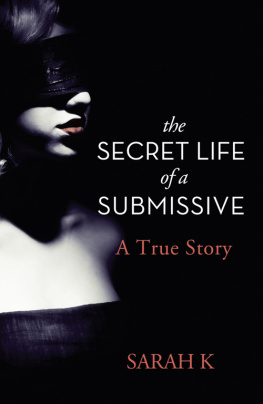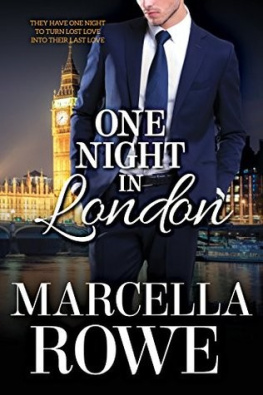Afterword
Few common-born men or women in English history have made so much of lifes opportunities as Sarah and John Churchill. Their return home in 1714 after their self-imposed exile was no exception. On the road to London, they were met by jubilant crowds and showered with flowers, their homecoming completely overshadowing Queen Annes death.
After a stroke had left Anne bedridden earlier in July, she had agreed to appoint Lord Shrewsbury to replace Oxford, her final act as queen. Knowing death was near, she had also haltingly asked for Mr. and Mrs. Freeman before a second stroke left her unable to speak. The Churchills arrival was three days too late. Anne died on the morning of August 1, 1714, having made no last confession and leaving her will unsigned. Only her favorite Anglican clergy were at her side; she had neither family nor friends left to comfort her.
Even Abigail Masham deserted the queen on her deathbed, and reportedly spent the last hours before Anne died looting the royal quarters for whatever she could carry away (though it would seem entirely in keeping with Sarahs character if those last reports about her rival had somehow originated from Sarahs own pen). Abigail then disappeared from the palace, and from history.
The supporters of Annes half brother, James Francis Edward Stuart, never abandoned the empty hope that Anne had somehow made a final acknowledgement of him as her successor. A weak, pathetic figure, the Old Pretender was the constant center of futile Jacobite plots to regain the English throne. He died in 1766, in the same exile in which hed lived his long and wasted life.
James Francis Edwards single significant achievement was to marry a Polish princess named Maria Clementina Sobieski, who in turn gave birth to his only son Charles Edward Stuart in 1720. (Soon after, Princess Clementina abandoned James Francis, and retreated to a nunnery for the rest of her lifemuch as James Franciss mother Mary Beatrice had once longed to do.) More commonly known as Bonnie Prince Charlie, or the Young Pretender, Charles Edward was blessed with all the charisma that his father had lacked, and he soon became the rallying leader of the remaining Jacobites. But though he gallantly led his supporters in the Scottish rising of 1745, his hopes for the English throne as well as the Jacobite cause were forever destroyed in the disastrous battle of Culloden Moor. He died in exile in Rome in 1788, a tragic figure immortalized in romantic fiction and poetry.
While John Churchill may have been disgraced by the English Parliament, Europeans still revered him as the most brilliant general and diplomat of their time. Prince George of Hanover, soon crowned King George I of England, immediately reinstated John as captain general. All of Johns honors and privileges were returned to him, and construction on Blenheim Palace was ordered resumed. Sarah grandlyand somewhat gleefullyresumed her place at the top of Whig society, and Marlborough House in St. Jamess Park was crowded day and night with well-wishers and those seeking favor with the new regime.
John had little time left to enjoy his restored glory. Sixty-four when he and Sarah returned to England, his health rapidly deteriorated, and two strokes in 1716 left him partially paralyzed and deprived of speech. Sarah nursed him faithfully, their love for one another still famously strong, until he died in 1722, aged seventy-two. He was buried in Westminster Abbey with full military honors.
When Sarah sorted through Johns most private belongings after his death, she found the long switch of her hair that shed so furiously cut off to spite him long before. All shed known was that the hair had disappeared after shed thrown it away. Now she discovered hed kept the hair for over twenty years, coiled and tied together with her love letters in a silk ribbon.
Was it any wonder that she never remarried?
Though Johns death left an enormous vacuum in Sarahs life, she was not prepared retire as a grieving widow in the country. At sixty-four, she was still remarkable for her beauty and her lively mindand her infamous gift for quarrels. Summoning the most powerful gentlemen of the day to her at Marlborough House and at Holywell, she continued to be active behind the scenes of Parliamentary politics, and her widespread network included Henry Walpole and William Pitt, and even Voltaire.
She persevered tirelessly to see that Blenheim Palace was at last completed in 1727the permanent tribute to John hed wantedand exhausted (and outlasted) two architects and countless workmen in the process.
Always the one whod handled the family accounts, Sarah developed a shrewd eye for investing her already large fortune, and was one of the few who made enormous profits (rumored to be as much as one hundred thousand pounds) from the infamous South Sea stocks in 1720, predicting the exact moment to withdraw her funds before the bubble collapsed. In time she became the wealthiest woman in Britain, and one of the wealthiest in all Europe, including royalty.
Sarahs relationships with her daughters, sons-in-law, and grandchildren were always turbulent. None ever seemed to live up to her standards, or act as she wished, and her family quarrels were filled with endless manipulation, long-lasting grudges, name-calling, and periods of furious silence. She outlived all but one of her children, her youngest daughter Mary.
Perhaps Sarahs single greatest disappointment was that neither of her sons had survived to inherit the title and fortune that she had labored so hard to achieve. But even that was settled with typical Sarah determination: she lobbied Parliament hard to permit the dukedom of Marlborough to descend through the female line, and upon Johns death, their oldest daughter, Henrietta, became the second Duchess of Marlborough.
But what makes Sarah still so vivid today was her very modern concern for how she would appear both to her contemporaries and to future generations. In a time when ladies were expected to stand silently in their husbands shadows, she boldly presented herself as an equal at the sides of both John and Queen Anne, and seized her own share of fame.
She was one of the first to understand the power of the press in creating a public personality. To this end, she alternately courted and vilified some of the greatest writers of her time, and there is no other lady who can claim to have been lambasted by Daniel Defoe, Jonathan Swift, and Samuel Johnson. She kept all letters written to her, and copies of all she in turn wrote, saving everything with an eye to presenting herself to posterity in the best possible lightor, if necessary, in a court of law.
Finally, in 1742, the eighty-two-year-old dowager duchess published her ghostwritten, tell-all autobiography. With the unwieldy title of An Account of the Conduct of the Dowager Duchess of Marlborough, from her First Coming to Court, to the year 1710, the book named royal names and supplied juicy details, even if not always entirely true. To Sarahs immense satisfaction, her Account became an instant bestseller, and for the last two years before her death in 1744, she was once again bright in the public eye.
And while Sarah might have been disappointed in her own children, surely certain of her qualities passed through her descendants. Born in 1874, her great-great-great-great-great-great-grandson began his career as a soldier with a good measure of Johns courage, and finished it with such legendary statesmanship that even Sarah would have been proud: Sir Winston Churchill.
More recently, a shy, golden-haired girl descended from Sarah through her daughter Annes marriage into the Spencer family rose to prominence. This lady combined Sarahs bright beauty and boundless charm with a celebrity that made her the center of attention wherever she went. Crowds cheered and tossed flowers to her, too, just as they once had to Sarah: Diana, Princess of Wales.

![Susan Holloway Scott [Fiction] Duchess: A Novel of Sarah Churchill](/uploads/posts/book/51001/thumbs/susan-holloway-scott-fiction-duchess-a-novel.jpg)






